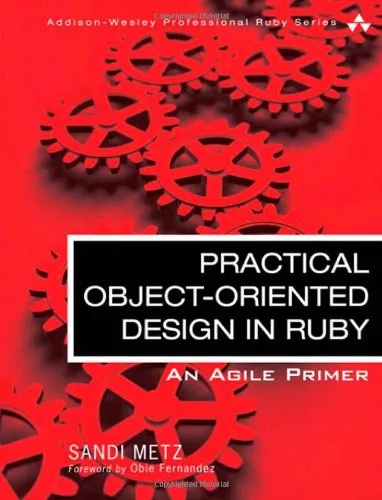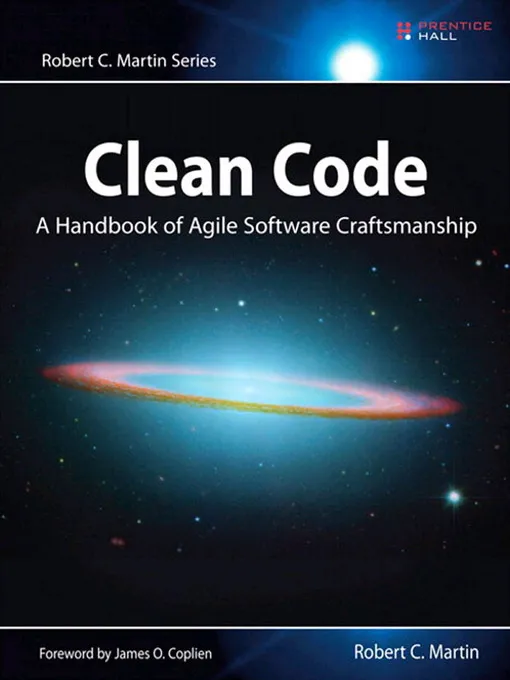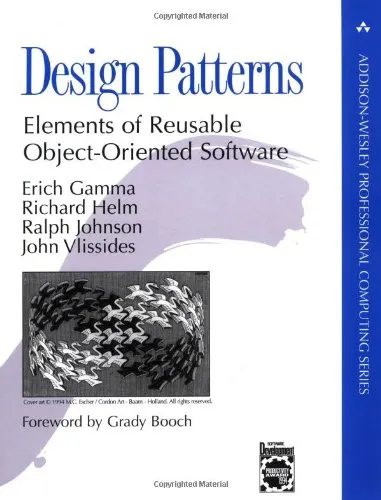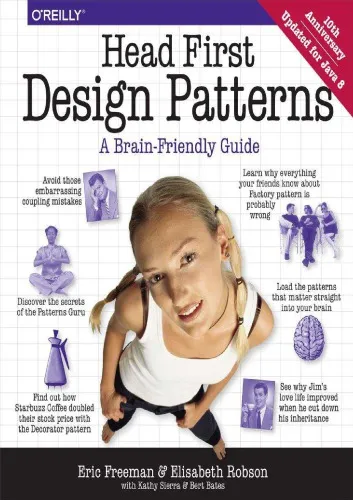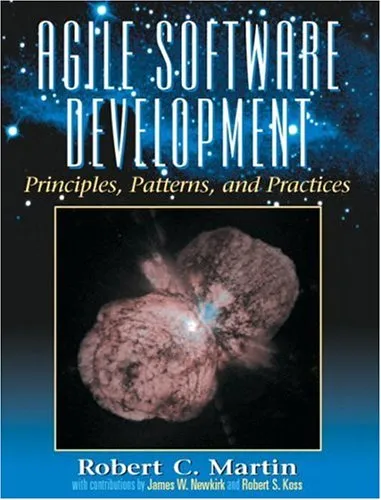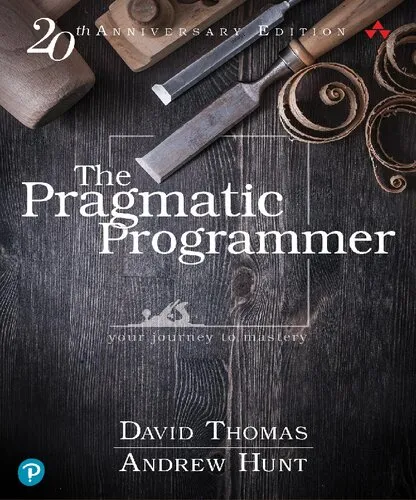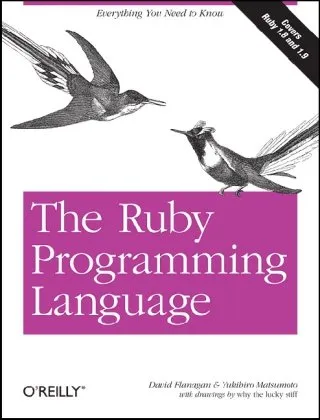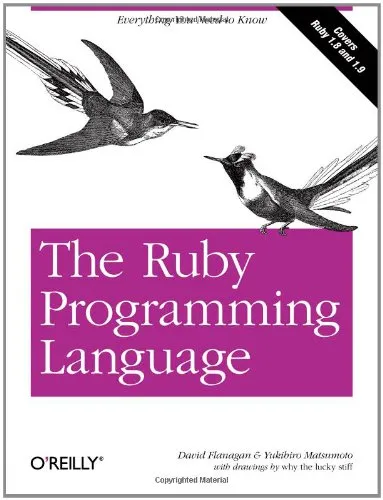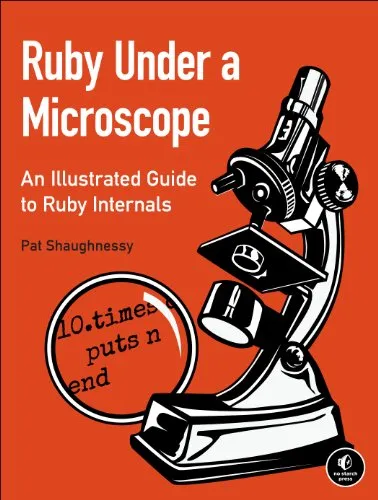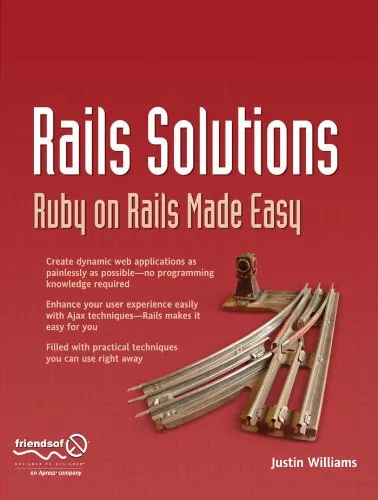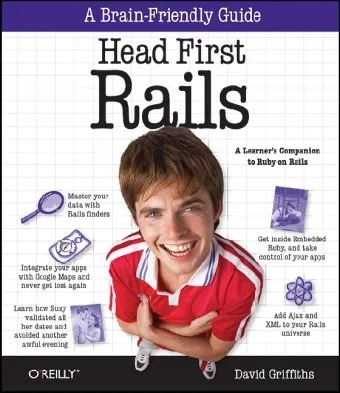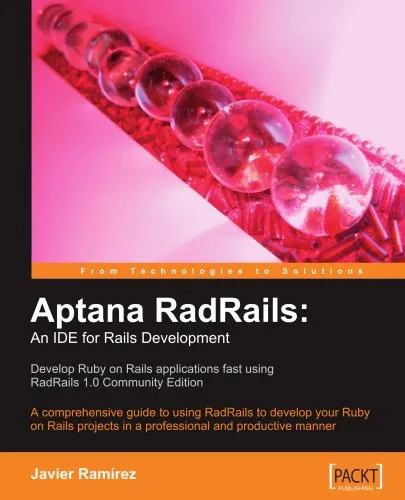Practical Object-Oriented Design in Ruby: An Agile Primer
4.5
Reviews from our users

You Can Ask your questions from this book's AI after Login
Each download or ask from book AI costs 2 points. To earn more free points, please visit the Points Guide Page and complete some valuable actions.Related Refrences:
Persian Summary
Introduction to Practical Object-Oriented Design in Ruby An Agile Primer
In the world of software development design is often seen as a luxury that can be sacrificed in the name of expediency. However as Sandi Metz so eloquently argues in her book "Practical Object-Oriented Design in Ruby An Agile Primer" good design is not just a nicety but a necessity for creating software that is maintainable flexible and efficient.
Detailed Summary of the Book
"Practical Object-Oriented Design in Ruby" is a comprehensive guide to object-oriented design principles and how to apply them in Ruby. The book is divided into six chapters each focusing on a different aspect of object-oriented design. The chapters are designed to be read in sequence with each one building on the concepts introduced in the previous one.
The book begins by introducing the basics of object-oriented design including classes objects inheritance and polymorphism. It then delves deeper into more advanced topics such as duck typing dependency injection and the Single Responsibility Principle SRP. Throughout the book Metz uses real-world examples and case studies to illustrate the concepts and make them more accessible to readers.
One of the unique aspects of the book is its focus on the "why" behind object-oriented design principles. Metz doesn't just present the principles as dogma but rather explains the reasoning behind them and how they can be applied in different contexts. This approach makes the book feel more like a conversation with a experienced developer rather than a dry textbook.
Key Takeaways
Some of the key takeaways from the book include
- Object-oriented design is not just about writing classes and objects but about creating a cohesive and maintainable system.
- The Single Responsibility Principle SRP is a fundamental principle of object-oriented design that states that a class should have only one reason to change.
- Dependency injection is a technique for decoupling objects and making them more flexible and reusable.
- Duck typing is a way of thinking about objects that focuses on their behavior rather than their class or type.
- Testing is an essential part of the design process and should be used to drive the development of the system.
Famous Quotes from the Book
Here are a few quotes from the book that capture the essence of Metz's approach to object-oriented design
"The goal of design is to create a system that is easy to change not just easy to write."
"A class should have only one reason to change."
"The most important thing in design is not the code but the relationships between the code."
Why This Book Matters
"Practical Object-Oriented Design in Ruby" is a book that matters because it fills a gap in the market for a comprehensive and accessible guide to object-oriented design principles. The book is not just for Ruby developers but for anyone who wants to learn about object-oriented design and how to apply it in their own work.
The book is also significant because it challenges the conventional wisdom that design is a luxury that can be sacrificed in the name of expediency. Metz argues that good design is not just a nicety but a necessity for creating software that is maintainable flexible and efficient.
Overall "Practical Object-Oriented Design in Ruby" is a book that should be on every software developer's bookshelf. It is a comprehensive guide to object-oriented design principles and a must-read for anyone who wants to create software that is maintainable flexible and efficient.
Free Direct Download
You Can Download this book after Login
Accessing books through legal platforms and public libraries not only supports the rights of authors and publishers but also contributes to the sustainability of reading culture. Before downloading, please take a moment to consider these options.
Find this book on other platforms:
WorldCat helps you find books in libraries worldwide.
See ratings, reviews, and discussions on Goodreads.
Find and buy rare or used books on AbeBooks.
1737
بازدید4.5
امتیاز0
نظر98%
رضایتReviews:
4.5
Based on 0 users review
Questions & Answers
Ask questions about this book or help others by answering
No questions yet. Be the first to ask!
